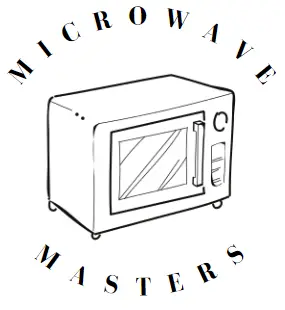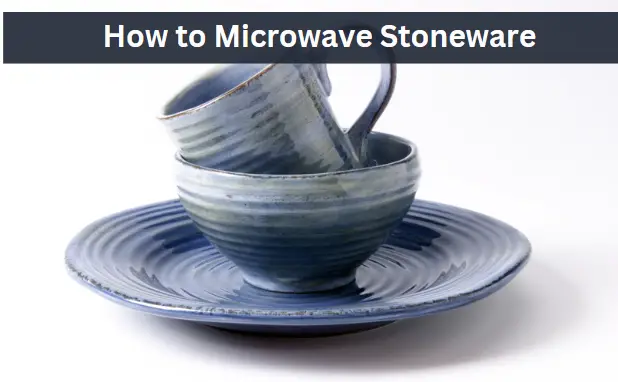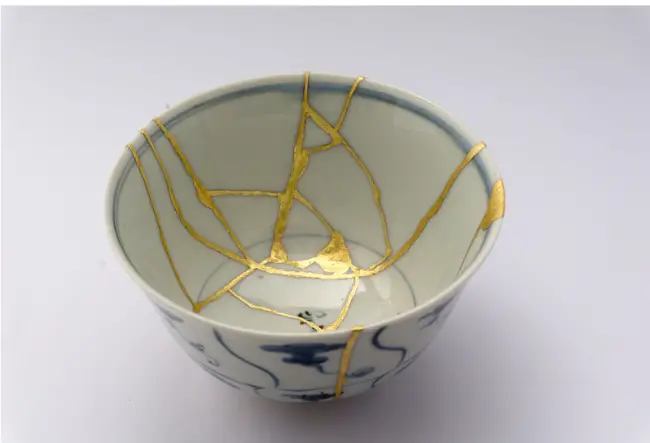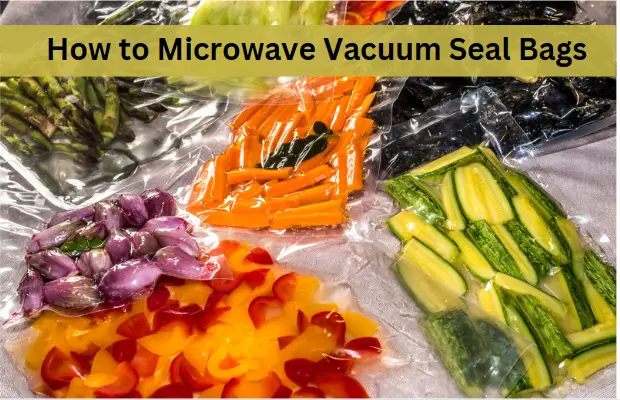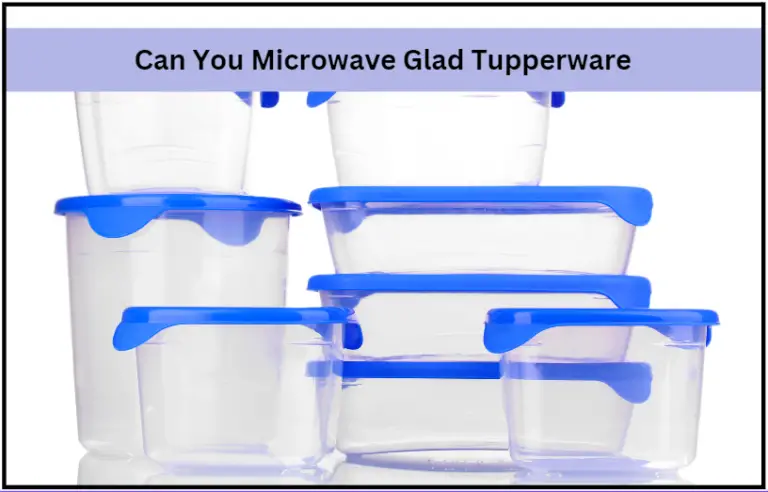Can You Microwave Stoneware? Yes, Here’s How!
Are you a fan of stoneware dishes? Do you often find yourself wondering if you can safely use them in the microwave? If so, you’re not alone. Many people love the durability and aesthetic appeal of stoneware, but are unsure if it’s safe to use in the microwave.
The good news is that, in most cases, stoneware is microwave safe. Stoneware is specifically designed to withstand high temperatures, making it a great choice for cooking and serving food. However, it’s important to note that not all stoneware is created equal. Some stoneware may contain high levels of lead and arsenic, which can be harmful if ingested. Additionally, stoneware can become less microwave safe with wear and tear, so it’s important to monitor your dishes for signs of damage.
In this article, we’ll explore the topic of microwaving stoneware in depth, answering common questions and providing tips for safe use. We’ll discuss what makes stoneware microwave safe, how to determine if your stoneware is safe to use in the microwave, and what precautions you should take when microwaving stoneware. Whether you’re a seasoned stoneware user or just starting to explore this versatile material, this article will provide valuable insights and information to help you make informed decisions about using stoneware in the microwave.
What is Stoneware?
Stoneware is a type of ceramic material that is fired at high temperatures, making it strong, durable, and non-porous. Stoneware is made from a mixture of clay, mica, and other natural materials, which gives it a unique texture and color. It is commonly used to make kitchen and dinnerware, such as plates, bowls, and mugs.
Differences between Stoneware and Porcelain
Porcelain is another type of ceramic material that is often compared to stoneware. While both are made from clay, porcelain is fired at a higher temperature, which makes it more durable and less porous. Porcelain is also known for its translucency and white color, while stoneware has a more earthy and rustic look.
Differences between Stoneware and Ceramic
Ceramic is a broad term that encompasses many different types of pottery, including stoneware. However, there are some key differences between stoneware and other types of ceramics. For example, earthenware is a type of ceramic that is fired at a lower temperature, which makes it more porous and less durable than stoneware.
Stoneware is also different from handmade ceramics, which are often made by individual artists and may not be as consistent in quality as stoneware made by a manufacturer. Le Creuset is a popular manufacturer of stoneware products, known for their high quality and durability.
In summary, stoneware is a type of ceramic material that is strong, durable, and non-porous. It is different from porcelain and other types of ceramics in terms of firing temperature, texture, and appearance. Whether you’re using stoneware made by a manufacturer or handmade by an artist, it is a great choice for kitchen and dinnerware.
Is Stoneware Microwave Safe?
Stoneware is a popular type of ceramic material that is used to make a wide range of kitchenware items, including plates, bowls, and mugs. One common question many people have is whether or not stoneware is safe to use in the microwave. The good news is that stoneware is generally considered safe for microwaving, but there are some important things to keep in mind.
What Makes Stoneware Microwave Safe?
Stoneware is made by firing clay at high temperatures, which makes it very durable and able to withstand the high heat of a microwave. Most commercially made stoneware that has a “microwave safe” label on the base is fine to use in the microwave. However, it’s important to monitor whether your stoneware dishes get hot in the microwave when they get older, as they can become less microwave safe with wear and tear.
The FDA sets standards for lead and cadmium levels in dishware. Stoneware that is made in the United States must meet these standards. However, some stoneware made in China may contain lead and arsenic that can leach into your food, especially if the glaze is cracked or damaged. Always look for the microwave-safe label, and if it’s not present, perform a quick test before microwaving.
Potential Risks of Microwaving Stoneware
While stoneware is generally safe for microwaving, there are some potential risks to be aware of. For example, certain glazes and paints don’t mix well with the electromagnetic radiation produced by the microwave. If there’s a crack in the dish, that can lead to poisoning. It’s also important to note that some stoneware may contain lead and arsenic that can leach into your food, especially with stoneware made in China.
In conclusion, stoneware is generally safe to use in the microwave, but it’s important to follow some basic safety guidelines. Always look for the microwave-safe label, and if it’s not present, perform a quick test before microwaving. Additionally, be aware of potential risks associated with microwaving stoneware, such as certain glazes and paints not being compatible with the electromagnetic radiation produced by the microwave.
Using Stoneware in the Microwave
If you’re wondering whether stoneware can be used in the microwave, the answer is yes, you can microwave stoneware. However, it’s important to follow a few guidelines to ensure safe and effective use.
How to Microwave Stoneware Safely
To microwave stoneware safely, follow these tips:
- Use only stoneware that is labeled as microwave safe.
- Avoid using stoneware that is cracked, chipped, or damaged in any way.
- Preheat the stoneware in the microwave before adding food to prevent thermal shock.
- Use oven mitts or a towel to handle hot stoneware.
- Allow stoneware to cool completely before washing it.
Can You Put Stoneware in the Microwave?
Yes, you can put stoneware in the microwave. However, not all stoneware is created equal, so it’s important to choose the right type of stoneware for your needs. High-fire stoneware is the most durable and can withstand high temperatures, making it ideal for use in the microwave. Mid-fire stoneware is less durable and may not be able to handle high microwave temperatures.
Overheating and Thermal Shock
Stoneware is porous and can retain heat for a long time, which can cause overheating and thermal shock if not used properly. Overheating can cause the stoneware to crack or warp, while thermal shock can cause the stoneware to shatter. To prevent these issues, avoid exposing stoneware to extreme temperature changes, such as placing it directly from the freezer into the microwave or broiler.
In summary, stoneware can be used in the microwave as long as you follow the guidelines for safe use. Choose high-fire stoneware for the best durability and always preheat the stoneware before adding food. With proper care, your stoneware can last for years and provide reliable performance in the microwave and oven.
Caring for Stoneware
Stoneware is a versatile and durable material that can last a long time with proper care. Here are some tips on how to care for your stoneware.
Cleaning Stoneware
Cleaning stoneware is easy, but it requires some care to avoid damaging the material. Here are some tips:
- Use a soft sponge or cloth to clean stoneware. Avoid using abrasive materials that can scratch the surface.
- Do not use metal utensils on stoneware, as they can scratch the surface and damage the glaze.
- If food is stuck to the stoneware, soak it in warm water for a few minutes before cleaning.
- Do not use soap on stoneware, as it can leave a residue that can affect the taste of food. Instead, use a mixture of baking soda and water to clean stoneware.
Dishwasher and Stoneware
While stoneware is generally dishwasher safe, it is best to check the manufacturer’s instructions before putting it in the dishwasher. Here are some tips:
- Do not overload the dishwasher. Make sure there is enough space between the stoneware pieces to allow water to circulate freely.
- Do not use the dishwasher’s drying cycle, as it can cause the stoneware to crack or warp.
- Avoid washing stoneware with other materials, such as metal or wood, as they can scratch the surface.
Storing Stoneware
Storing stoneware requires some care to avoid damage. Here are some tips:
- Store stoneware in a dry and cool place to avoid moisture buildup.
- Do not stack stoneware pieces on top of each other, as they can scratch or chip.
- Use a soft cloth or paper towel to wrap stoneware pieces before storing them.
In conclusion, caring for stoneware is easy with a little bit of care and attention. By following these tips, you can ensure that your stoneware lasts a long time and remains in good condition.
Cooking with Stoneware
Stoneware is a versatile and durable material that can be used for cooking, reheating, and serving food. It is a type of ceramic cookware that is known for its ability to evenly distribute heat, retain heat for longer periods, and resist scratches and stains. In this section, we will explore how to use stoneware for cooking, reheating, and serving food, as well as the benefits of using stoneware utensils.
Reheating Food in Stoneware
Stoneware is an excellent option for reheating food in the microwave or oven. It is microwave-safe, and it can withstand high temperatures in the oven without cracking or breaking. When reheating food in stoneware, it is important to ensure that the dish is not too hot to avoid burns. Also, avoid using stoneware that has metallic designs or edging in the microwave.
Using Stoneware for Cooking and Serving
Stoneware is an ideal material for cooking and serving food. It can go from the freezer to the oven, and it is dishwasher-safe, microwave-safe, and oven-safe. Stoneware bowls and mugs are perfect for soups, stews, and hot beverages. Stoneware baking dishes are great for even baking and can be used to make casseroles, lasagnas, and other baked dishes. Stoneware plates and platters are perfect for serving food at the table.
Stoneware Utensils
Stoneware utensils are a great addition to any kitchen. They are durable, scratch-resistant, and can withstand high temperatures. Stoneware utensils, such as spoons, spatulas, and ladles, are perfect for cooking and serving food. They are also great for use with non-stick cookware, as they do not scratch the surface. When using stoneware utensils, it is important to avoid using metal utensils, as they can scratch the surface.
In conclusion, stoneware is a versatile and durable material that can be used for cooking, reheating, and serving food. It is microwave-safe, oven-safe, and dishwasher-safe. Stoneware utensils are also a great addition to any kitchen. Whether you are cooking a casserole, reheating leftovers, or serving food at the table, stoneware is a great option to consider.
Conclusion
In conclusion, stoneware is a great option for microwave-safe dishes. It is durable, heat-resistant, and can hold heat beautifully. Stoneware is specifically made to withstand extreme heat and can easily handle the maximum effective temperature generated by most commercial microwaves.
When it comes to quality, stoneware is a top choice. It is resistant to chipping and can last for years with proper care. While it may be a bit more expensive than other options, the quality and durability of stoneware make it a worthwhile investment.
Many stoneware dishes are also eco-friendly, as they are made from natural materials and do not contain harmful chemicals. It is important to check the glazes of stoneware dishes to ensure they are free of lead and other toxins.
If you are looking for a specific brand of stoneware, Pampered Chef is a popular choice. They offer a wide variety of stoneware dishes that are microwave-safe and of high quality.
Overall, stoneware is a great option for those looking for a durable, heat-resistant, and eco-friendly microwave-safe dish. With proper care, stoneware dishes can last for years and provide even baking and browning.
